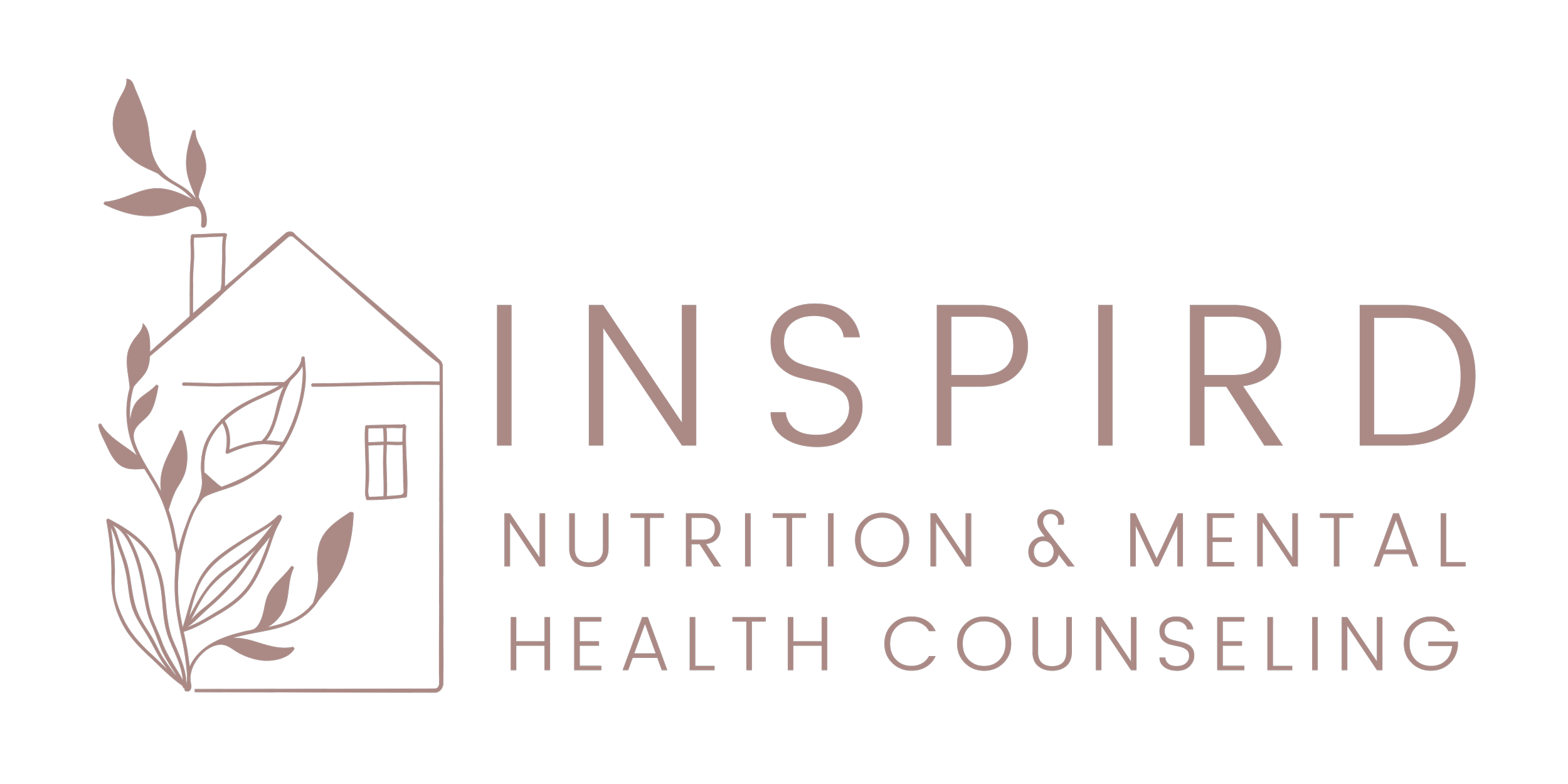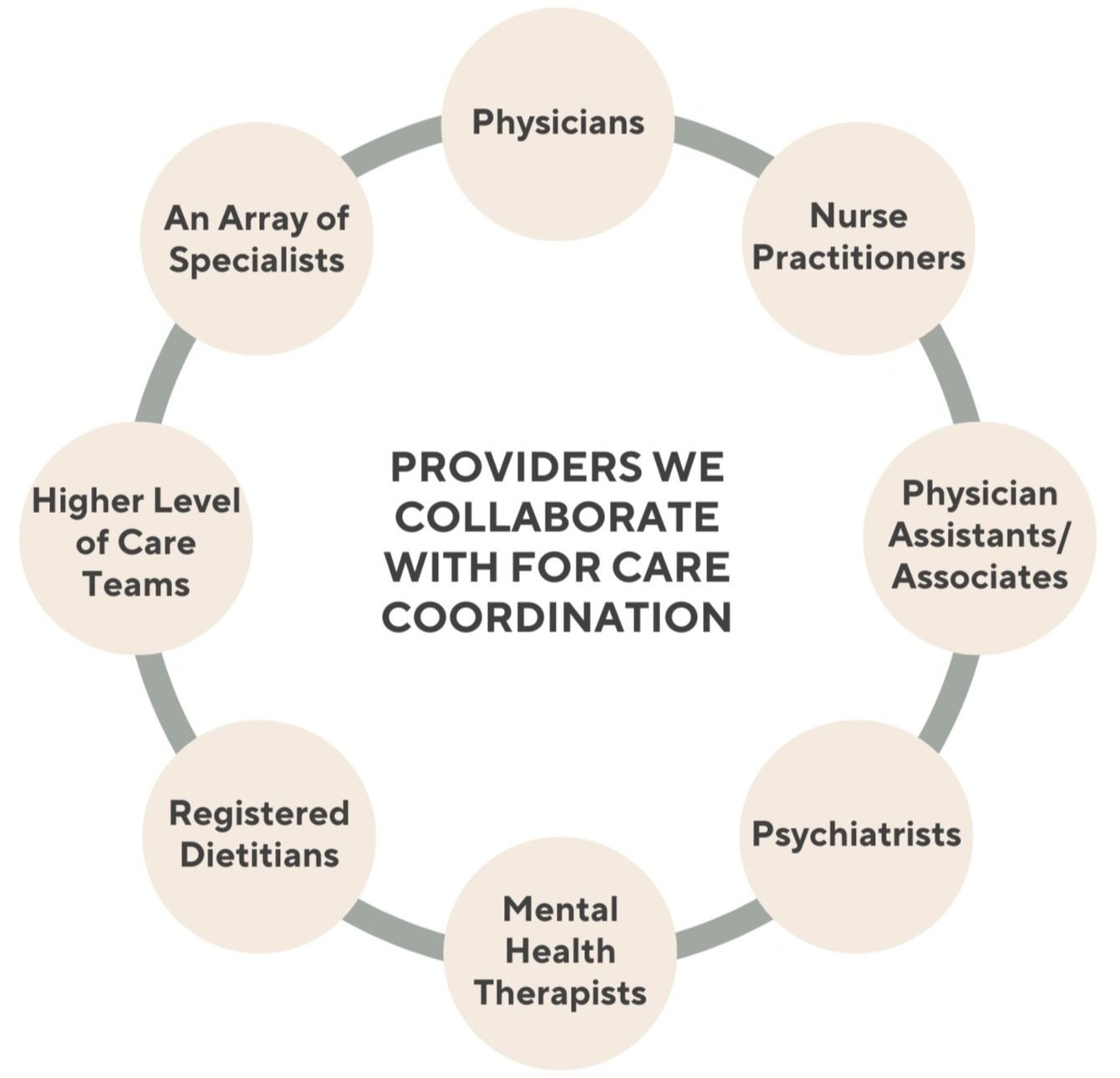Do you have a client that you would like to refer? Fill out our HIPAA-compliant, secure form below.
If you would rather download our referral form as a PDF that can be faxed to us, please click here.
The clinicians at INSPIRD Nutrition & Mental Health Counseling are eager to connect and collaborate with providers in the greater Pittsburgh, PA and Pennsylvania areas. We strive to make thorough collaboration of care a key pillar of our therapeutic work, recognizing and celebrating the scope and expertise of our fellow healthcare professionals. We believe that the most ethical & supportive care is provided when our clients have a thorough team of highly skilled providers.
Want to learn more about the services we provide and whether or not we may be a good fit for your client?
Read our FAQ below!
Frequently Asked Questions by Referring Providers:
For a PDF that briefly outlines the below information, please click here.
What services do you provide?
We provide both nutrition therapy and mental health therapy services.
Note: We are currently providing mostly virtual & telehealth sessions via HIPAA-compliant platforms for those throughout Pennsylvania and in select other states. In person sessions in our Monroeville, PA office may be requested.
Do you take insurance?
For nutrition therapy services, we are currently in network with following insurance providers:
We can also provide a superbill for out-of-network plans. Please note that we do not currently accept Medicare or Medicaid, but we do offer low cost-sliding scale options. Our top priority is to make care accessible to all. Please see our Insurance & Fees page for more information.
For mental health therapy services, we do not currently accept insurance. Our out of pocket rates are $100 for initial sessions and $80 for follow-ups.
Which providers do you collaborate with?
We collaborate with a variety of clinicians on our client teams, including but not limited to:
why Refer to a REgistered Dietitian?
Registered Dietitians are highly-qualified clinicians who hold clinical expertise in nutrition therapy.
Registered Dietitians are the only healthcare professionals that are trained and skilled in providing medical nutrition therapy, which is an evidence-based, individualized nutrition process meant to help treat certain medical conditions.
Our dietitians build caring relationships and provide nutrition therapy via a variety of therapeutic modalities to provide our clients with the best quality of care.
Because of this expertise, Registered Dietitians are a knowledgable and necessary asset to clinical and treatment teams for a variety of conditions.
Please note: The title “nutritionist” or any other iteration of it (when not used with the title registered dietitian) is not a regulated or credible clinician credential.
What is your practice philosophy?
INSPIRD Nutrition and Mental Health Counseling is dedicated to being a fat-positive, Health at Every Size® (HAES) informed practice that strongly condemns all systems of oppression that harm the mental and physical well-being & safety of our fellow humans. Our clinicians are committed to anti-racist, LGBTQIA+ affirming practices that denounce ableism, healthism, transphobia, misogyny, and anti-fat bias in all aspects of care. We take a therapeutic, compassionate, trauma-informed approach with our clients and center client lived experience at the foundation of our work. To read more about our grounding values & commitment, click here.
How can I become more educated on the assessment and treatment of eating disorders?
This is an important question! If you are a provider that works with humans, you work with humans that have eating disorders. It is estimated that at least 9% of people have eating disorders worldwide - that’s nearly 1 in 10 people!
It is imperative for all healthcare providers, no matter the specialty, to be able to adequately assess for and detect the signs of eating disorders. The problem is, our current healthcare system continues to ascribe to an inaccurate and stigmatizing idea of what eating disorders “look like.” Eating disorders can and do occur in folks of all body sizes, weights, races, ethnicities, gender identities, ages, and socioeconomic statuses. The research shows that less than 6% of folks with eating disorders are medically classified as underweight, and malnutrition & an array of eating disorder behaviors can occur at all body sizes. It’s crucial that we don’t overlook restrictive, disordered eating behaviors in folks across the body size spectrum. The first step to becoming more knowledgable about eating disorders is to challenge and unpack the implicit biases we have as healthcare professionals in a weight-centric world.
Interested in receiving Clinical Supervision for Eating Disorders and Weight-inclusive Care for you or your practice? Our supervisors are a wealth of knowledge and are ready to support you! Learn more here.
Below are some additional resources that you may find helpful in starting & broadening your knowledge base:
AED Guide to Medical Care for Eating Disorders (4th edition, 2021)
Guidebook for Nutrition Treatment for Eating Disorders (2020)
Ten Most Important Clinician Actions in Assessment & Treatment of Eating Disorders
Why You Should Remove the Words Ob*se and Ov*rweight from your Clinician Vocabulary
Fearing the Black Body: The Racial Origins of Fatphobia by Sabrina Strings, PhD
EDRDPro - Trainings and Webinars by and for a Variety of Healthcare Professionals
NalgonaPositivityPride by Gloria Lucas: Resources on ED Harm Reduction Care
FEDUP: Fighting Eating Disorders in Underrepresented Populations: A Trans+ & Intersex Collective
RDs for Neurodiversity: Neurodiversity Affirming Continuing Education
Are you a weight-inclusive provider? Add yourself to our public Greater Pittsburgh and Pennsylvania Weight-inclusive Providers List!
















